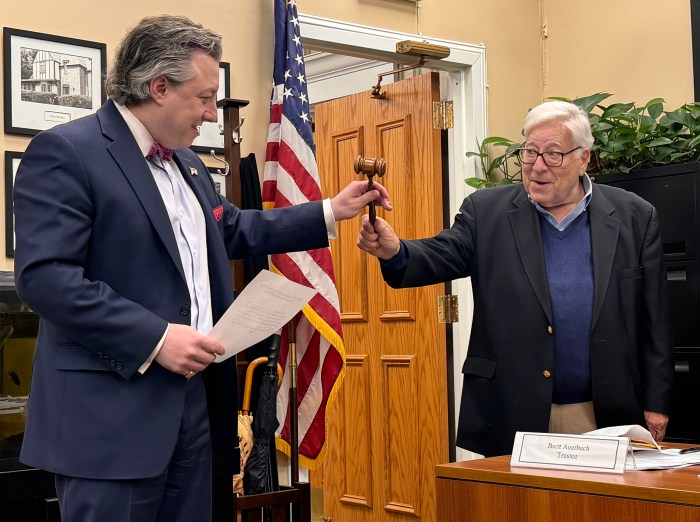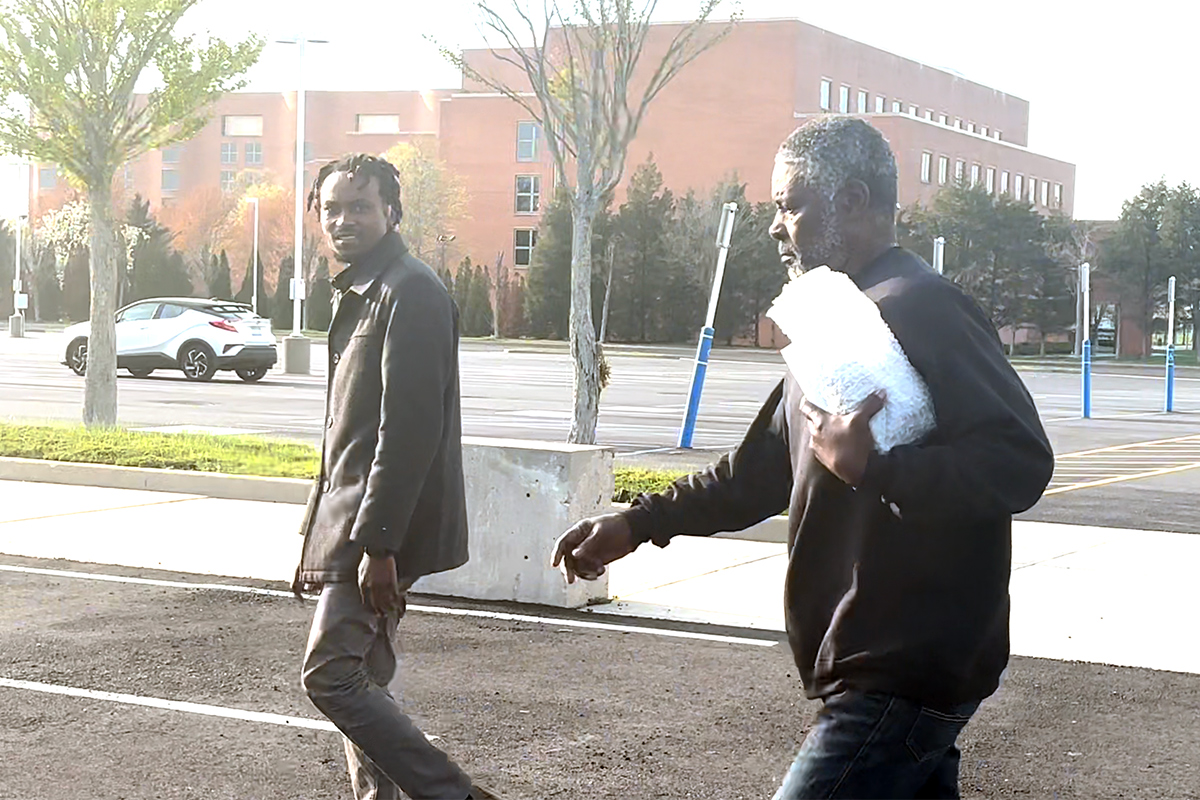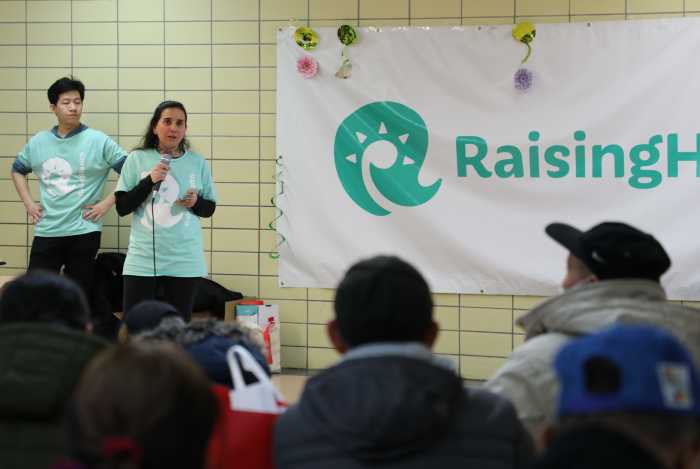New York State Senate District 7 Democratic rivals Kim Keiserman and Brad Schwartz touted their ability to unseat incumbent Republican state Sen. Jack Martins and combat what they are calling his extremist rhetoric.
“I believe we deserve to be represented by someone who can bring us together to find real solutions, not someone who fear mongers, sows divisions and panders to the extremes of their party,” Keiserman said. “To regain our voice in Albany, it’s vital that we flip this seat.”
The Democratic candidates answered various community questions Thursday night at a forum hosted by the Port Washington-Manhasset League of Women Voters.
Keiserman is an education consultant and serves as a commissioner for the North Hempstead Housing Authority Board of Commissioners, chairwoman of the Baxter Estates Planning Board and a board member of the Come to Believe Network.
Schwartz, who ran in the 2018 race but dropped out before the primary against former state Sen. Anna Kaplan, is a former television editor and producer with a Ph.D in public policy. He is a lifelong resident of Long Island’s North Shore and lives in Roslyn.
Keiserman and Schwartz are going head-to-head in the race to challenge Martins, a Republican, who is running for re-election. The primary winner will face off against Martins.
Martins defeated Democratic candidate and former state Sen. Anna Kaplan in 2022, flipping the seat red. With a Democrat loss in the rear window, both candidates spoke about how they could unseat Martins.
Schwartz said Martins fear mongers, whereas his pursuit as a candidate is in debunking disinformation. He said it is necessary that a Democratic candidate is capable of standing “toe-to-toe” with Martins in the general election.
“I know how to respond to that kind of messaging,” Schwartz said.
Keiserman agreed that Martins is a “formidable candidate,” as phrased in the question asked, but that the political climate has changed since the 2022 election year. She called that a difficult year in general for Democratic candidates.
What also makes this year’s election different than in 2022, Keiserman said, is the knowledge of Martins’ actions as a legislator, his rhetoric and the expected higher voter turnout due to the presidential election.
“He simply has not been very present in the district, and it’s been noticed,” Keiserman said.
She called his rhetoric “increasingly hardline and out of touch with the values of our district.”
Martins is campaigning to reduce crime in Nassau County, attributing a rise to laws like cashless bail. But both candidates pushed back against this narrative of rising crime, with statistics showing falling rates of crime in 2023.
“Senator Martins has made crime a centerpiece of his social media and his messaging, and his messaging is always meant to be fear mongering, raising fears about crime,” Keiserman said.
She said she assumes Martins is taking this approach because it has been effective in the past, but that the narrative needs to be shifted with Democrats expressing strong support for public safety.
Schwartz said Nassau County is one of the safest counties in the country, but one of its biggest dangers is its Republican County Executive Bruce Blakeman.
Schwartz cited Blakeman’s “militia,” or deputation of armed citizens, as a threat to the county and a national security threat.
“It is part of a wider MAGA movement to create a national infrastructure at the local level of insurrectionists,” Schwartz said. “When you have public safety issues and there are ill-defined responsibilities, that is when the worst accidents occur.”
Keiserman stressed the importance of electing a Democrat to represent the district in November. Backed by a slew of political organizations and multiple Democratic elected officials of the past and present, Keiserman said she is the one to do this.
The candidates also answered multiple questions about District 7 issues, including the high cost of living.
Rising costs have been a main issue on Long Island in recent elections, and both candidates are campaigning to address the issue.
Schwartz said property taxes prevent middle and lower-income families from moving to Long Island, calling them “aggressively, regressive.” He said innovative solutions need to be made to address property taxes, comparing them to income taxes which are based on income.
Keiserman said other financial stressors in tandem with property taxes are the cost of housing, transportation and childcare.
Solutions she offered include lower taxes for small businesses and supporting programs like universal pre-K, childcare and senior care assistance.
The candidates were also asked to list their top two priorities for education. Keiserman listed fully funding schools and promoting anti-hate education, while Schwartz said it is the reformulation of foundation aid and hiring more teachers amid shortages.
Both candidates also expressed their support for reproductive rights, combatting antisemitism, promoting civic education and engagement, affordable multi-family housing, gun safety legislation and the halting of congestion pricing.
Keiserman and Schwartz also listed the committees on which they would like to serve on if elected to the state Senate.
For Keiserman, this is education, environmental conservation, transportation and women’s issues. Schwartz said he would want to be on veterans and homeland security, ethics and governance, local government and budget and revenue.
The primary election will be held on June 25, with early voting occurring from June 15 through June 23. The general election featuring the primary winners will be held on Nov. 5.
































